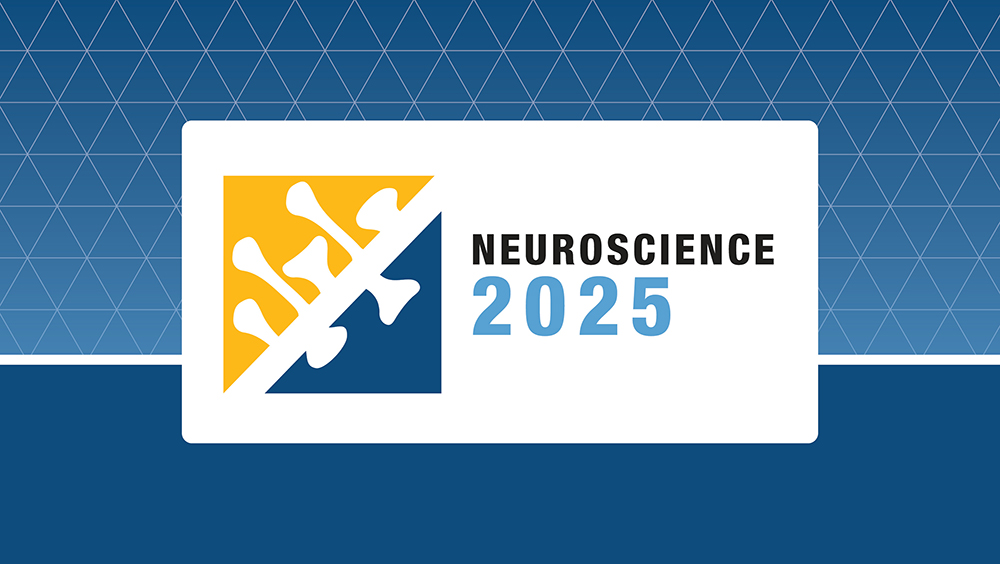Inside Neuroscience: The Complexity of Social Behavior
Navigating social interactions is a whole-brain endeavor. Difficulties in interpreting and reacting to social cues can occur in everyday interactions and are often pronounced in conditions such as schizophrenia, autism, or depression.
Scientists studying the complexity of social behavior discussed their research at Neuroscience 2024 during a press conference titled, “Trust, Empathy, and Social Cues: Deciphering Social Behavior.”

Nancy Padilla-Coreano
The studies showcased a variety of creative experimental approaches in humans, mice, and voles — all highly social creatures. The brain regions, cells, and molecules involved in social relationships are highly similar in humans and mice, event moderator Nancy Padilla-Coreano, an assistant professor at the University of Florida in Gainesville said.
“Animal models give us a really good starting point,” said Padilla-Coreano.
In humans, researchers explored which social cues engender trust in social media. In animals, they examined the links between the gut microbiome and autism, the impact of emotions on social interactions, and the neuronal basis of empathy.
“We don't have treatments for the detrimental social deficits caused by neuropsychiatric disorders. A key missing piece is a better understanding of basic neural mechanisms governing social interactions," said Padilla-Coreano.
Trust Us
Hong Xu, associate professor of psychology at Nanyang Technological University, Singapore, studies how social cues such as gender, emotions, and attire influence our reactions to social media posts.

Hong Xu
She presented human study subjects with information from different human presenters with varying factors such as gender, emotional tone, and clothing.
She found that subjects were most likely to trust information provided by female speakers using a happy or neutral tone. They were also more likely to trust news that was authentic and from sources dressed in a doctor, nurse, or police uniform.
This effect was observed independent of the medium, such as whether the information was presented through text or audio. The findings provide insight into a key social behavior that helps glue society together: building trust.
“Our findings provide insight into our understanding of trust and judgment of news on social media,” said Xu.
Gut Bacteria to the Rescue?
The connections between gut health, immunity, and neurodevelopmental disorders is a growing area of research.

Namyoung Jung
About 70% of children with autism spectrum disorder (ASD) have gastrointestinal problems, said Namyoung Jung, a postdoctoral researcher at Pohang University of Science and Technology, South Korea.
Other studies have found that children with ASD have a distinct mixture of microbes in their gut compared with neurotypical children. Molecular profiling of brain tissue has also found evidence of widespread elevated neuroinflammation in children with ASD, but a lot remains unknown.
“We still don't know how the bacteria influence brain function and social behavior in individuals with autism,” said Jung.
Jung took a close look at the role of a bacterium commonly found the guts of mice, humans, and other species, Lactobacillus reuteri. Treatment with L. reuteri reduces social deficits in a mouse model of ASD, she reported.
Jung and her colleagues examined the brains of treated vs. untreated mice, assessing 38 different types of cells at the single-cell level in a region involved in social behavior. Treated mice showed evidence of substantially altered gene activity across most cell types. The most pronounced change was activation of genes involved in anti-inflammatory pathways, particularly in immune cells of the brain. These findings suggest that L. reuteri may reduce neuroinflammation.
“These mechanisms can be harnessed to develop new medications targeting the core symptoms of ASD,” said Jung, adding that data from early clinical studies hint that L. reuteri may also be effective in people with ASD.
Isolation: Female vs. Male
Withdrawing almost completely from human interaction is a common response after a deeply hurtful social experience. Mice appear to do something similar, sometimes withdrawing in response to social stress from negative interactions with other mice.
“A negative social relationship can lead to generalized avoidance of all kinds of social relationships,” said Qi Wei Xu, a graduate student at McGill University, Canada.

Qi Wei Xu
Xu found that such generalized avoidance is more likely to occur in female than male mice.
In her experiments, Xu introduced a mouse to two companions. Interactions with one companion — dubbed the “bad mouse” — resulted in a mild electric shock. Male mice learned to avoid the bad mouse and only interacted with the other “good” companion.
Female mice, on the other hand, had a different response. They avoided both the “good” and the “bad” companions. Compared to males, socially stressed females also had reduced activity in the hippocampus.
One interpretation is that female mice may generalize fear toward all social companions after stress, said Xu.
The research may lead to a greater understanding of sex-based differences in neuropsychiatric conditions, said Xu. General avoidance often accompanies depression and post-traumatic stress disorder, which affect women more than men, she said.
“Our findings have implications for understanding the higher vulnerability of women to developing mood disorders, and for the development of future therapeutics,” said Xu.
The Region of Empathy
Prairie voles are known for their devotion to their mates.
They are social, monogamous creatures that have close relationships with their life partners and appear to show empathy-like behavior towards them. If a vole is put in isolation and stressed, its partner will console them upon their reunion, engaging in calming grooming behavior.

Sarah Blumenthal
Sarah Blumenthal, a graduate student at Emory University, studies this behavior to better understand empathy, which can be impaired in people with conditions such as autism, schizophrenia, and Alzheimer’s disease.
Blumenthal’s research focuses on the anterior cingulate cortex, a brain region implicated in empathy. Her studies found that inhibiting the activity of cells in this region reduced consolation behavior.
She also found a role for the hormone oxytocin, known for mediating social interactions, bonding, and trust. Inhibiting oxytocin receptors in the anterior cingulate cortex similarly quelled consoling behavior.
“Our hope is that continued research into what’s driving this consoling behavior, looking at the circuits and cell types all the way down to the molecules, can then be translated into therapeutic targets for empathy deficits,” said Blumenthal.























